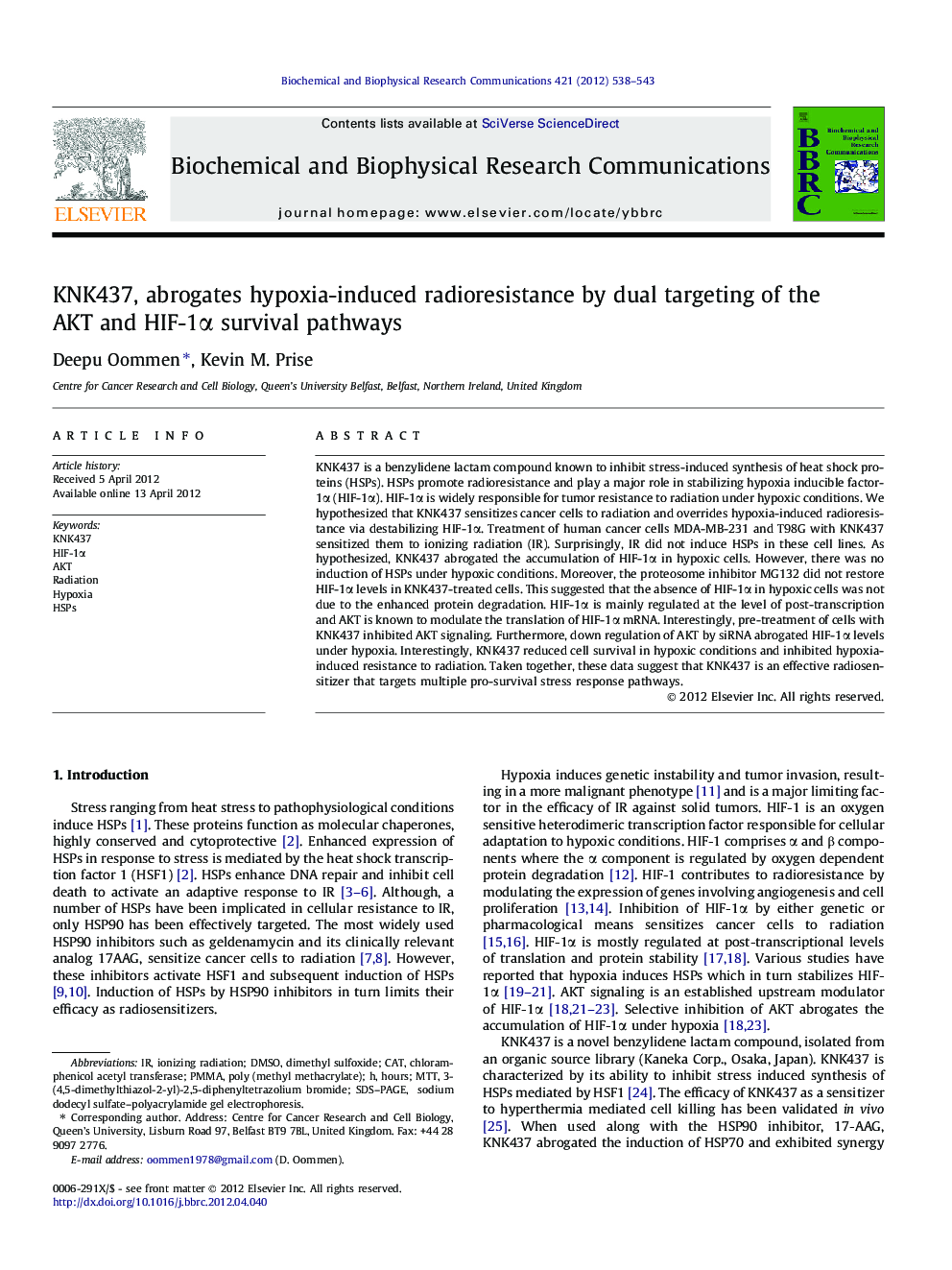| Article ID | Journal | Published Year | Pages | File Type |
|---|---|---|---|---|
| 1929659 | Biochemical and Biophysical Research Communications | 2012 | 6 Pages |
KNK437 is a benzylidene lactam compound known to inhibit stress-induced synthesis of heat shock proteins (HSPs). HSPs promote radioresistance and play a major role in stabilizing hypoxia inducible factor-1α (HIF-1α). HIF-1α is widely responsible for tumor resistance to radiation under hypoxic conditions. We hypothesized that KNK437 sensitizes cancer cells to radiation and overrides hypoxia-induced radioresistance via destabilizing HIF-1α. Treatment of human cancer cells MDA-MB-231 and T98G with KNK437 sensitized them to ionizing radiation (IR). Surprisingly, IR did not induce HSPs in these cell lines. As hypothesized, KNK437 abrogated the accumulation of HIF-1α in hypoxic cells. However, there was no induction of HSPs under hypoxic conditions. Moreover, the proteosome inhibitor MG132 did not restore HIF-1α levels in KNK437-treated cells. This suggested that the absence of HIF-1α in hypoxic cells was not due to the enhanced protein degradation. HIF-1α is mainly regulated at the level of post-transcription and AKT is known to modulate the translation of HIF-1α mRNA. Interestingly, pre-treatment of cells with KNK437 inhibited AKT signaling. Furthermore, down regulation of AKT by siRNA abrogated HIF-1α levels under hypoxia. Interestingly, KNK437 reduced cell survival in hypoxic conditions and inhibited hypoxia-induced resistance to radiation. Taken together, these data suggest that KNK437 is an effective radiosensitizer that targets multiple pro-survival stress response pathways.
► KNK437, a benzylidene lactam compound, is a novel radiosensitizer. ► KNK437 inhibits AKT signaling and abrogates the accumulation of HIF-1α under hypoxia. ► KNK437 abrogates hypoxia induced resistance to radiation.
